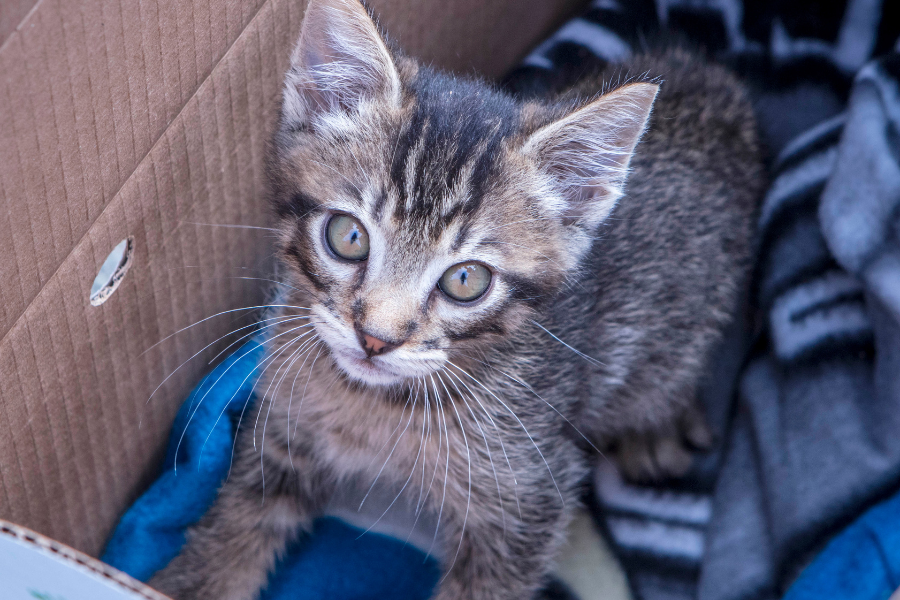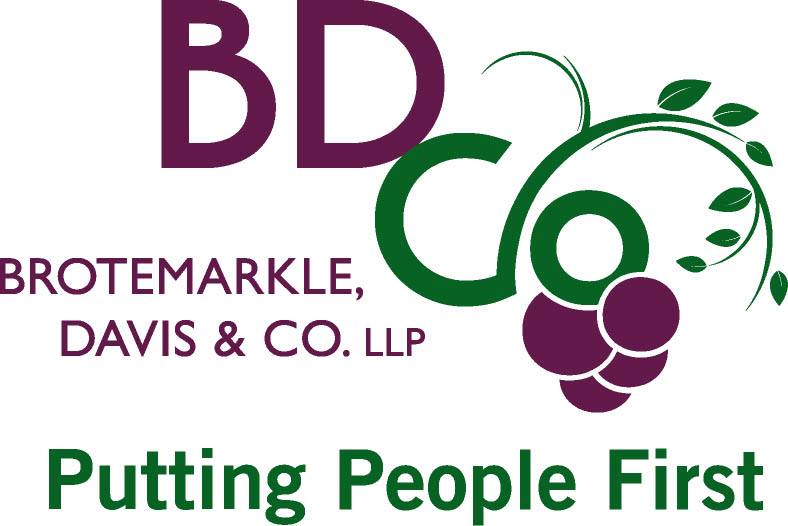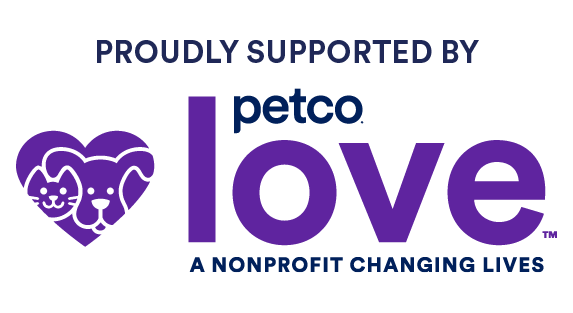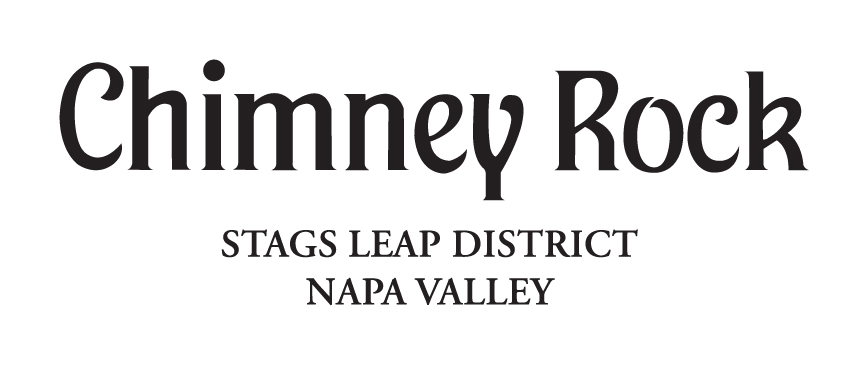
The Truth About “Free” Kittens: Why They’re Anything But Free
by Wendi Piscia | August 6th, 2025 | 12:13 pm
Recently, someone posted on Nextdoor: “FREE KITTENS! 6 weeks old. Eating on their own. Super cute!” The photo showed a box of wide-eyed fluffballs nestled on a towel. The post got dozens of likes, plenty of shares, and by the end of the day, all the kittens had supposedly found homes.
Posts like this appear often during spring and summer, what we in animal welfare call kitten season. As the weather warms, unspayed female cats give birth in overwhelming numbers. Shelters, rescues, and kind-hearted neighbors scramble to help, and people often offer kittens “free to a good home” sometimes from sidewalks, parking lots, or social media.
While the gesture may seem generous, the truth is this: there’s no such thing as a free kitten.
The Real Cost of “Free”
Welcoming a kitten into your life may feel like a simple act of kindness—but caring for one properly takes time, effort, and money. According to the American Veterinary Medical Association, basic vet care in the first year can cost over $1,000—and that’s without any surprise medical issues.
Here’s what that includes:
-
- Spay/neuter surgery ($80–$500+): Prevents future litters and health risks. One unspayed female cat and her offspring can produce 11 million kittens in nine years.
- Vaccinations ($25–$75 per round): Kittens need multiple rounds to protect against diseases like panleukopenia and rabies.
- Parasite treatment ($10–$200+): Many kittens—especially outdoor-born—have fleas, roundworms, or ear mites.
- Veterinary exams ($50–$100+ per visit): A healthy start requires at least one vet check, but illness can require follow-ups.
- Microchipping ($12–$75): Vital for reuniting lost pets with their families.
Add litter boxes, bowls, toys, scratchers, kitten-safe litter, high-quality food, and time to socialize them and that “free” kitten quickly becomes a $800–$1,200 commitment in the first year alone.
Emotional Costs, Too
The emotional toll can be just as steep. Kittens are often adopted too young—before they’ve been weaned or developed strong immune systems. They may seem playful and independent, but they’re fragile.
We’ve seen families devastated when their newly adopted kitten becomes sick or dies from preventable illnesses like upper respiratory infections or parasites. These situations can be especially heartbreaking for children. No one should have to learn about responsible pet care through grief.
A Better Way: Adoption
If you’re ready to welcome a kitten into your family, adopting from a shelter or rescue is a smarter, safer choice. Not only do you support life-saving work, but you also receive a kitten who’s been given proper care.
For example, the Napa County Animal Shelter charges a $130 adoption fee that includes:
-
- Spay/neuter surgery
- Age-appropriate vaccinations
- Microchipping
- Deworming and flea treatment
- A voucher for a veterinary exam
Many local rescues offer similar packages. It’s not just more affordable, it’s more reliable.
What If You’re the One With the Kittens?
If your cat had an unexpected litter or you found orphaned kittens, you’re not alone. Every kitten season, people are caught off guard and want to do the right thing.
Here’s how you can help:
-
- Keep kittens with their mother until they’re at least 8 weeks old. Early separation can lead to health and behavioral problems.
- Spay/neuter the parents. Napa Humane offers affordable, high-quality surgeries.
- Avoid giving kittens away for free. Ask adopters to reimburse some vet costs or charge a small rehoming fee. It deters impulse decisions and encourages responsible adoption.
How Napa Humane Helps
Napa Humane has weathered many kitten seasons over our 50+ years. We offer affordable spay/neuter surgeries, vaccines, microchipping, and other preventive care to help pet parents give their animals the healthiest possible start.
Our clinic performs thousands of spay/neuter surgeries each year, with a strong focus on community cats, the largest source of kittens entering shelters.
But our support doesn’t stop there.
We’re excited to share that Napa Humane has recently launched a new rehoming resource, designed to empower individuals to find safe, loving homes for pets while helping them stay out of the shelter system.
Resources include:
-
- Courtesy listings to connect directly with potential adopters
- Adoption contracts
- Rehoming questionnaires
- Step-by-step guidance for a smooth and thoughtful transition
Our courtesy listings are hosted through Rehome by Adopt-a-Pet—a secure, user-friendly platform that lets you create a profile for the adoptable animal, screen potential adopters, and manage the rehoming process with confidence. It’s a far safer option than giving pets away online or in public spaces. You can explore all our rehoming resources at: https://bit.ly/NHRehome
We can only provide these vital services with your support. Donations help keep our programs affordable and accessible to the entire community. Every gift helps a kitten get the care—and the future—it deserves.
What You Can Do
If you’ve read this far, you care. That means you can make a real difference this kitten season.
-
- Spay or neuter your pets, even indoor cats
- Adopt from shelters and rescues
- Donate to local animal welfare organizations to support affordable care in your community.
- Plan ahead. If you’re considering a kitten, make sure your household is ready for the responsibility
- If you are rehoming kittens, make sure they’ve received basic veterinary care first, and charge an appropriate adoption fee
- Be an advocate. Share what you’ve learned with friends and neighbors who may not know the real cost of “free”
Kitten season doesn’t have to be a crisis. With compassion, planning and a little education, we can turn it into a season of healthy beginnings instead.
The topics discussed in this feature are part of a larger conversation about animal welfare in Napa County. Want to learn more? Explore the entire series at: https://bit.ly/NVRNapaHumane



























































